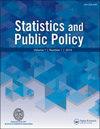2021年2月新冠肺炎疫苗接种对自我报告的抑郁和焦虑的影响
IF 1.5
Q2 SOCIAL SCIENCES, MATHEMATICAL METHODS
引用次数: 1
摘要
利用新冠肺炎趋势和影响调查(CTIS),我们研究了2021年2月接受疫苗接种的调查对象中新冠肺炎疫苗接种对(自我报告的)抑郁和焦虑(“抑郁”)、隔离和对健康的担忧的影响。假设没有未测量的混杂因素,我们估计疫苗接种分别导致这些结果发生-4.3(-4.7,-3.8)、-3.4(-3.9,-2.9)和-4.8(-5.4,-4.1)个百分点的变化。我们进一步认为,这些影响为大流行的心理健康负担提供了一个下限,这意味着新冠肺炎大流行导致了2021年2月接受疫苗接种的CTIS调查对象中至少28.6%(25.3,31.9)的抑郁感增加和20.5%(17.3,23.6)的孤独感增加。我们还假设了一个模型,在该模型中,疫苗接种通过对健康的担忧和孤独感影响抑郁症,并估计了每种途径介导的比例。我们发现,社会孤立感是更强的中介,占总效应的41.0(37.3,44.7)%,而对健康的担忧占总影响的9.4(7.611.1)%。我们警告说,对这些发现的因果解释建立在强有力的假设之上。尽管如此,随着疫情的持续,政策制定者还应针对旨在管理与新冠肺炎疫情相关的巨大心理健康负担的干预措施。本文章由计算机程序翻译,如有差异,请以英文原文为准。
The effect of COVID-19 vaccinations on self-reported depression and anxiety during February 2021
Using the COVID-19 Trends and Impacts Survey (CTIS), we examine the effect of COVID-19 vaccinations on (self-reported) feelings of depression and anxiety ("depression"), isolation, and worries about health, among vaccine-accepting survey respondents during February 2021. Assuming no unmeasured confounding, we estimate that vaccinations caused a -4.3 (-4.7, -3.8), -3.4 (-3.9, -2.9), and -4.8 (-5.4, -4.1) percentage point change in these outcomes, respectively. We further argue that these effects provide a lower bound on the mental health burden of the pandemic, implying that the COVID-19 pandemic was responsible for at least a 28.6 (25.3, 31.9) percent increase in feelings of depression and a 20.5 (17.3, 23.6) percent increase in feelings of isolation during February 2021 among vaccine-accepting CTIS survey respondents. We also posit a model where vaccinations affect depression through worries about health and feelings of isolation, and estimate the proportion mediated by each pathway. We find that feelings of social isolation is the stronger mediator, accounting for 41.0 (37.3, 44.7) percent of the total effect, while worries about health accounts for 9.4 (7.6, 11.1) percent of the total effect. We caution that the causal interpretation of these findings rests on strong assumptions. Nevertheless, as the pandemic continues, policymakers should also target interventions aimed at managing the substantial mental health burden associated with the COVID-19 pandemic.
求助全文
通过发布文献求助,成功后即可免费获取论文全文。
去求助
来源期刊

Statistics and Public Policy
SOCIAL SCIENCES, MATHEMATICAL METHODS-
CiteScore
3.20
自引率
6.20%
发文量
13
审稿时长
32 weeks
 求助内容:
求助内容: 应助结果提醒方式:
应助结果提醒方式:


